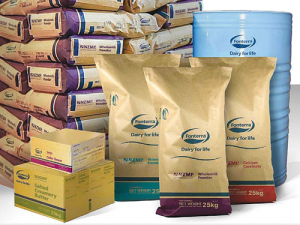Editorial: Morale booster
OPINION: The first three Global Dairy Trade (GDT) auctions have been a morale booster for farmers.
 Global Dairy Trade (GDT) auctions have traded more than US$22 billion worth of products over the last 10 years.
Global Dairy Trade (GDT) auctions have traded more than US$22 billion worth of products over the last 10 years.
GDT Events auctions rewrote the rules of engagement for buying and selling dairy commodities, says Eric Hansen, director Global Dairy Trade.
In the last 10 years to the end of June this year Global Dairy Trade has facilitated the trading of at least US$22 billion cumulative value of dairy products to buyers from 80 countries.
It held its first online auction ten years ago on the GDT Events platform, aiming to be the most credible and comprehensive maker of prices for core dairy ingredients.
“In the era before Global Dairy Trade existed, buyers and sellers were struggling to understand what constituted a current market price in the midst of unprecedented volatility,” he says.
“Dairy farmers had limited access to information about what the milk in their vats was worth in international markets.
“By applying advanced auction methods to create a new sales channel for globally traded commodity dairy products, Global Dairy Trade’s auctions provided assurance to buyers that they were paying a fair market price.
“Buyers and sellers were able to better manage price risk. And farmers had a regular market-based price signal on which they could plan their farming businesses.”
The transparent, market-based pricing Global Dairy Trade provides now has wide market interest and acceptance and furnishes the references prices on which financial risk management tools are built.
In the early days, however, the Global Dairy Trade development team was hard-pressed to prove that an online dairy auction platform would work in practice, says Hansen.
“We started with a team of three people, selling just one product each month -- whole milk powder.
“We launched at a challenging time. Our first auction on July 2, 2008 delivered prices in the mid-range of expectations. Not long after that, the global economy went into freefall. As the global financial crisis took hold, dairy prices crashed and they kept falling until February 2009.
“Then the recovery started. The result achieved in the first trading event provided proof of concept; we just had to hold on until the market hit bottom and turned.
“We kept the monthly sales going and GDT Events provided price discovery in a world of huge uncertainty.”
Over time, more sellers joined GDT Events which is now a trusted and transparent platform for high-volume, high-quality generic dairy ingredients.
Global trade has been thrown into another bout of uncertainty following the overnight ruling by US Supreme Court, striking down President Donald Trump's decision to impose additional tariffs on trading partners.
Controls on the movement of fruit and vegetables in the Auckland suburb of Mt Roskill have been lifted.
Fonterra farmer shareholders and unit holders are in line for another payment in April.
Farmers are being encouraged to take a closer look at the refrigerants running inside their on-farm systems, as international and domestic pressure continues to build on high global warming potential (GWP) 400-series refrigerants.
As expected, Fonterra has lifted its 2025-26 forecast farmgate milk price mid-point to $9.50/kgMS.
Bovonic says a return on investment study has found its automated mastitis detection technology, QuadSense, is delivering financial, labour, and animal-health benefits on New Zealand dairy farms worth an estimated $29,547 per season.
OPINION: Staying with politics, with less than nine months to go before the general elections, there’s confusion in the Labour…
OPINION: Winston Peters' tirade against the free trade deal stitched with India may not be all political posturing by the…